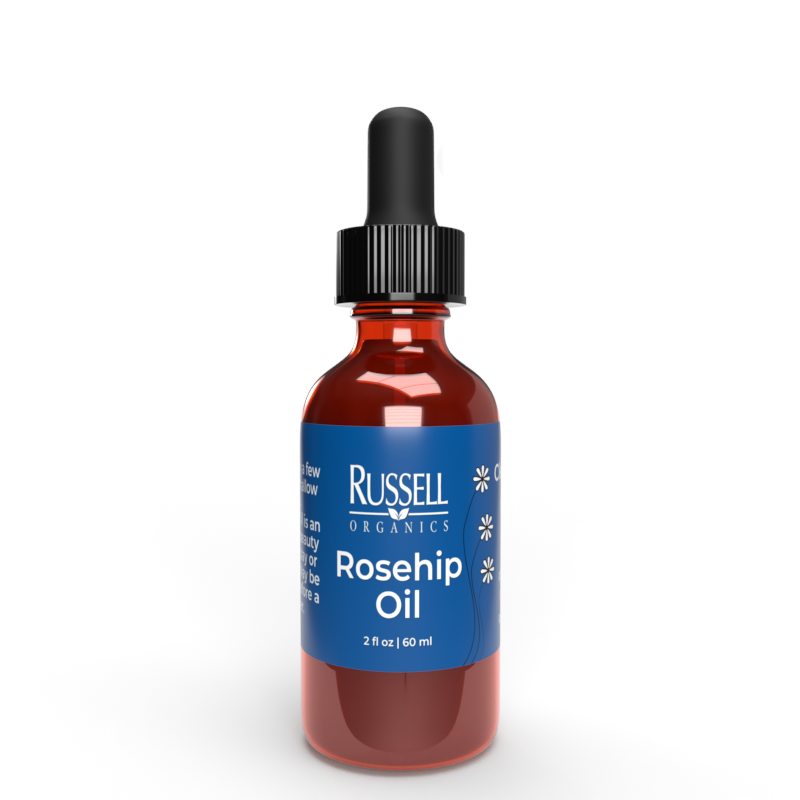
Rosehip seed oil, extracted from the seeds of the wild rose bush, has become highly sought-after in the skincare industry due to its wide array of benefits. Rich in essential nutrients and fatty acids, this versatile oil provides a natural solution for a wide range of skin issues. In this article, we will delve into the diverse skin benefits of using rosehip oil topically.
Rich in Vitamins
One of the primary reasons rosehip oil is highly beneficial for the skin is its high vitamin content. Rosehip oil is particularly rich in vitamins A, C, and E. These vitamins play a crucial role in maintaining skin health.
Vitamin A
Retinoic acid is a well-known ingredient in various skincare products for its ability to encourage skin cell turnover. This nutrient helps reduce the appearance of fine lines and wrinkles. It also supports collagen production, crucial for keeping the skin's elasticity and firmness.
Ascorbic Acid
Ascorbic acid is another potent antioxidant found in rosehip oil. It helps protect the skin from free radical damage and environmental aggressors. Additionally, vitamin C is recognized for its skin-brightening properties. Regular use of rosehip oil can help even out the skin tone and reduce hyperpigmentation.
Vitamin E
Tocopherol is a critical nutrient for healthy skin. It acts as a powerful antioxidant, protecting the skin from oxidative stress. Vitamin E also helps maintain the skin's moisture barrier, preventing excessive dryness and keeping the skin hydrated.
Nourishing Fatty Acids
In addition to vitamins, rosehip oil contains vital fatty acids, including omega-3, omega-6, and omega-9. These fatty acids are crucial for maintaining the skin's natural barrier and retaining moisture.
Omega-3 Fatty Acids
Linolenic acid are recognized for their anti-inflammatory properties. They help soothe irritated and inflamed skin. For those with sensitive or acne-prone complexions, rosehip oil can be particularly beneficial.
Omega-6 Fatty Acids
Linoleic acid play a crucial role in maintaining the skin's barrier integrity. They help prevent moisture loss and keep the skin hydrated. Linoleic acid is also known to help reduce acne by regulating sebum production.
Omega-9 Fatty Acids
Omega-9 fatty acids provide nourishment and moisture to the skin. They are also known to improve the absorption of other beneficial compounds in skincare products.
Fighting the Signs of Aging
Rosehip oil is renowned for its ability to combat signs of aging. Consistent application of this oil can help reduce the appearance of fine lines, wrinkles, and age spots.
Boosts Collagen Production
Previously mentioned, this oil includes vitamin A, which stimulates collagen production. Increased collagen levels result in firmer and more elastic skin. It lessens the visibility of fine lines and wrinkles, giving the skin rosehip oil and hyaluronic acid a more youthful appearance.
Reduces Hyperpigmentation
Vitamin C found in rosehip oil helps fade dark spots and hyperpigmentation. Regular application of the oil can lead to a more even skin tone and brighter overall complexion.
Improves Skin Texture
Rosehip oil also helps enhancing skin texture. It promotes skin cell turnover, resulting in smoother and more refined skin. Additionally, the hydrating properties of the oil ensure the skin remains soft and supple.
Deep Hydration
One of the key benefits of rosehip oil is its ability to deeply moisturize and hydrate the skin. Its lightweight texture allows for easy absorption without leaving a greasy residue.
Locks in Moisture
The essential fatty acids in rosehip oil help lock in moisture, preventing dryness and keeping the skin hydrated. This feature makes rosehip oil an excellent choice for those with dry, dehydrated skin.
Barrier Reinforcement
Strengthening the skin's natural protective barrier, rosehip oil helps preventing moisture depletion and protecting against environmental damage. This is especially beneficial for those with sensitive skin.
Skin Healing
Another notable benefit of rosehip oil is its healing capabilities. Its high content of vitamins and fatty acids helps repair damaged skin and promote healing.
Reduces Scarring
The vitamin A and fatty acids in rosehip oil assist in reducing the appearance of scars, including acne scars and surgical scars. Regular application of the oil can result in smoother and less noticeable scars.
Inflammation Relief
Anti-inflammatory properties of rosehip oil aid in soothing irritated and inflamed areas. This renders it an excellent choice for skin care needs.